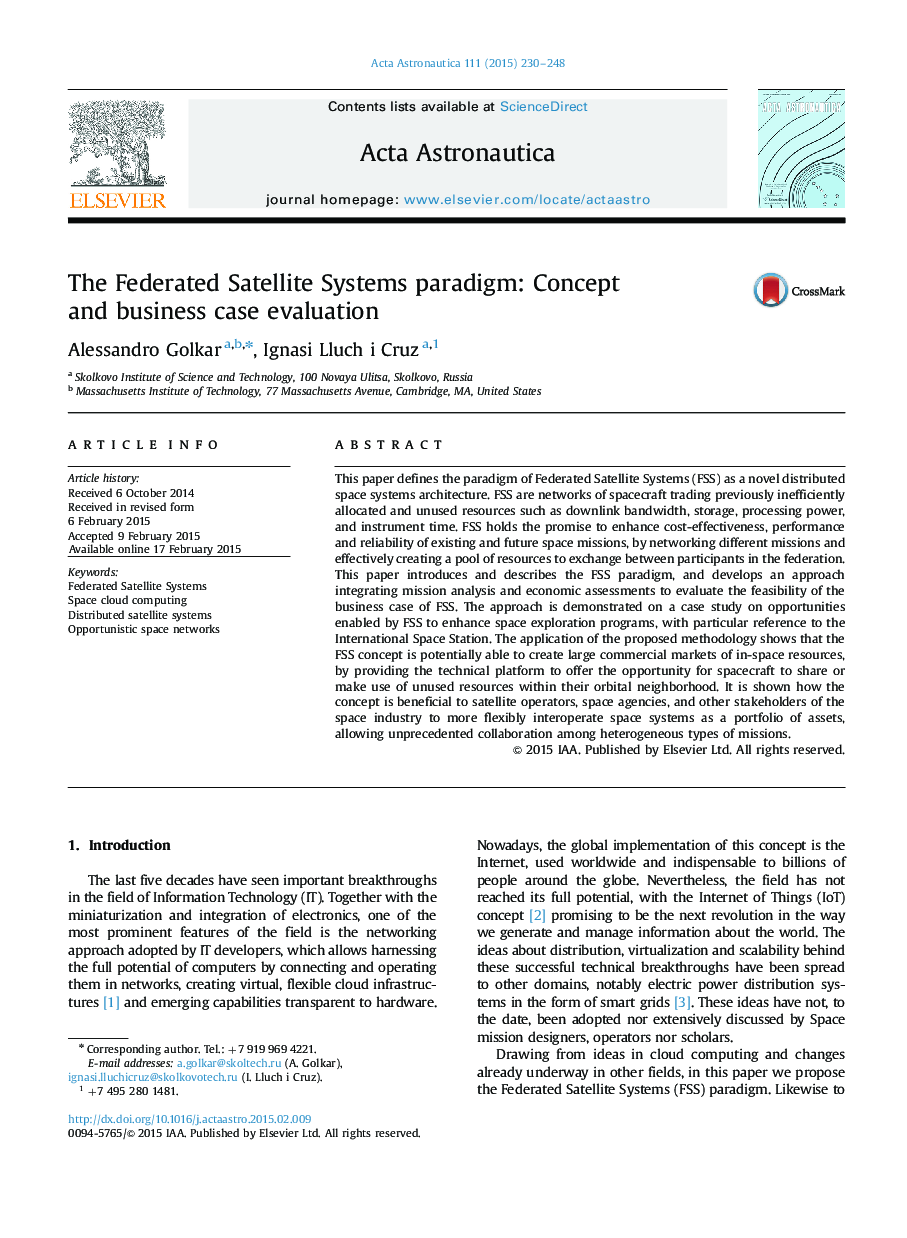| Article ID | Journal | Published Year | Pages | File Type |
|---|---|---|---|---|
| 1714381 | Acta Astronautica | 2015 | 19 Pages |
•Federated Satellite Systems (FSS) as a novel concept of distributed spacecraft design.•An implementation of cloud computing in satellite systems.•Introduction of the concept of federated satellites and discussion of associated benefits and technological challenges.•A methodology for the assessment of the business case of federated satellites.•Analysis of the International Space Station as a case study of Federated Satellite Systems.
This paper defines the paradigm of Federated Satellite Systems (FSS) as a novel distributed space systems architecture. FSS are networks of spacecraft trading previously inefficiently allocated and unused resources such as downlink bandwidth, storage, processing power, and instrument time. FSS holds the promise to enhance cost-effectiveness, performance and reliability of existing and future space missions, by networking different missions and effectively creating a pool of resources to exchange between participants in the federation. This paper introduces and describes the FSS paradigm, and develops an approach integrating mission analysis and economic assessments to evaluate the feasibility of the business case of FSS. The approach is demonstrated on a case study on opportunities enabled by FSS to enhance space exploration programs, with particular reference to the International Space Station. The application of the proposed methodology shows that the FSS concept is potentially able to create large commercial markets of in-space resources, by providing the technical platform to offer the opportunity for spacecraft to share or make use of unused resources within their orbital neighborhood. It is shown how the concept is beneficial to satellite operators, space agencies, and other stakeholders of the space industry to more flexibly interoperate space systems as a portfolio of assets, allowing unprecedented collaboration among heterogeneous types of missions.
